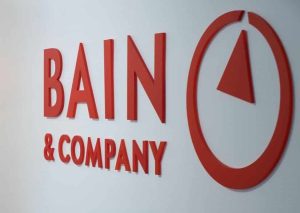Diversity, Equity, and Inclusion (DEI) efforts have been a major focus of businesses since 2020. Many companies are struggling to develop and effectively implement programs and frequently turn to consulting firms such as Bain & Company for guidance. In 2021, Bain published a report detailing 10 tactics, based on their work with clients and available academic research, that show the strongest evidence of effectively moving the needle on DEI. At the end of 2022, the firm presented data on how companies are evaluating themselves and their progress.
Based on Bain’s “Opportunity Identifier” tool, the data is drawn from a self-selected cohort of 170 respondents with an interest in DEI, who evaluated the efforts at their own companies and scored the relative state of development of each of the 10 tactics the firm had identified in 2021. Overall, the respondents assessed themselves at “early stage” or “developing” for 9 out of the 10 actions — unsurprising given the relatively recent focus on DEI efforts and the sustained multi-year commitment required.
Of the data gathered, Bain identified several key challenges that are holding businesses back from becoming more diverse, equitable, and inclusive: the most common is a gap between company DEI initiatives and their broader business strategy, with many businesses failing to tie DEI efforts to specific, measurable efforts, goals, and outcomes. Skills-based hiring, a practice supported by academic research as particularly effective, is also lagging behind. The practice focuses on skills and competencies that make for successful candidates, deprioritizing credential-based criteria such as college degrees.
Another major DEI challenge for businesses is turning their focus outwards onto a broader audience. More than 60% of respondents evaluated their companies highly on offering family-sustaining wages and benefits meeting MIT’s living wage standards; a boon to their own workers, but not necessarily reflective of the general American workforce, 52 million of whom make less than $15 per hour. By focusing DEI efforts externally, businesses can help make progress throughout their value chains, supporting other companies that reflect their own values.
As companies continue their DEI journeys, benchmarking and measurement of specific, measurable goals will remain a key foundation for success, as will improving hiring practices and focusing efforts externally. By building more diverse, equitable, and inclusive workplaces, businesses can help turn the tide of systemic bias and ensure a fairer future for everyone.

























